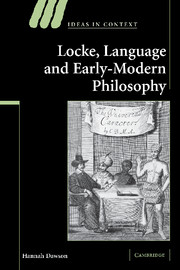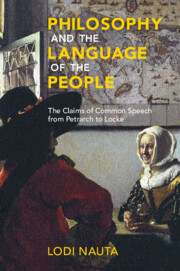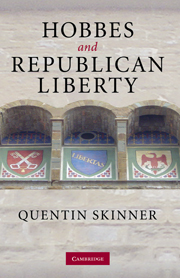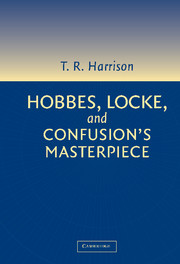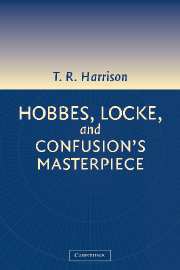Locke, Language and Early-Modern Philosophy
In a powerful and original contribution to the history of ideas, Hannah Dawson explores the intense preoccupation with language in early-modern philosophy, and presents an analysis of John Locke's critique of words. By examining a broad sweep of pedagogical and philosophical material from antiquity to the late seventeenth century, Dr Dawson explains why language caused anxiety in various writers. Locke, Language and Early-Modern Philosophy demonstrates that developments in philosophy, in conjunction with weaknesses in linguistic theory, resulted in serious concerns about the capacity of words to refer to the world, the stability of meaning, and the duplicitous power of words themselves. Dr Dawson shows that language so fixated all manner of early-modern authors because it was seen as an obstacle to both knowledge and society. She thereby uncovers a novel story about the problem of language in philosophy, and in the process reshapes our understanding of early-modern epistemology, morality and politics.
- Was the first comprehensive account of early-modern philosophy of language to examine such a broad sweep of pedagogical and philosophical material
- Was the first book to explain why language was the object of anxiety for all manner of early-modern philosophers
- Reveals the devastating impact of Locke's philosophy of language on his epistemology and political theory
Product details
September 2007Adobe eBook Reader
9780511286940
0 pages
0kg
This ISBN is for an eBook version which is distributed on our behalf by a third party.
Table of Contents
- Acknowledgements
- Notes on the text
- Introduction
- Part I. Language in the Trivium:
- 1. Language in logic
- 2. Language in grammar
- 3. Language in rhetoric
- Part II. Philosophical Developments of the Problem of Language:
- 4. The relationships between language, mind and world
- 5. Semantic instability: a containable threat
- 6. Under cover of sensible and powerful words
- Part III. Locke on Language:
- 7. Words signify ideas alone
- 8. Semantic instability: an inherent imperfection
- 9. A life of their own
- 10. Locke in the face of language
- Bibliographies.

